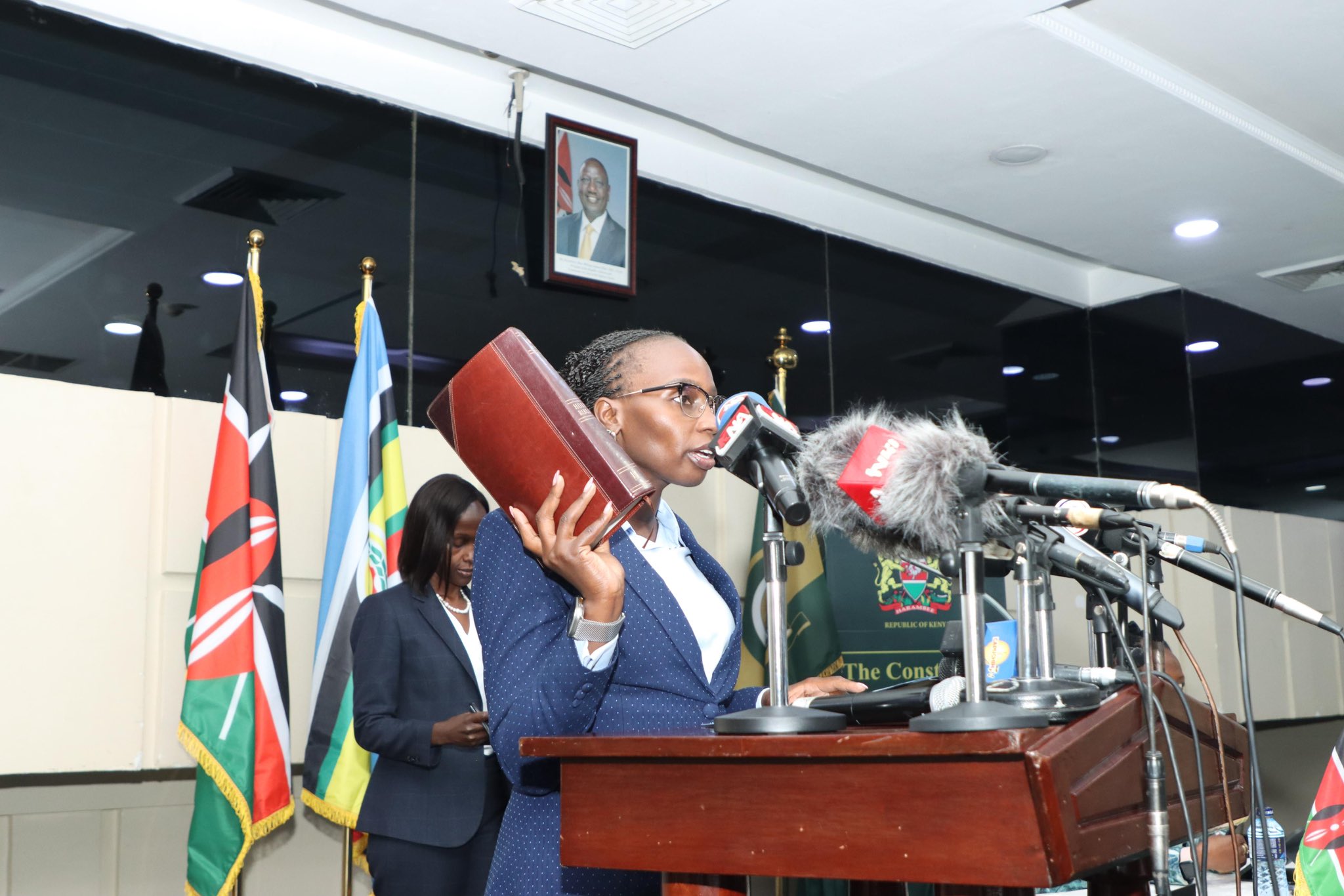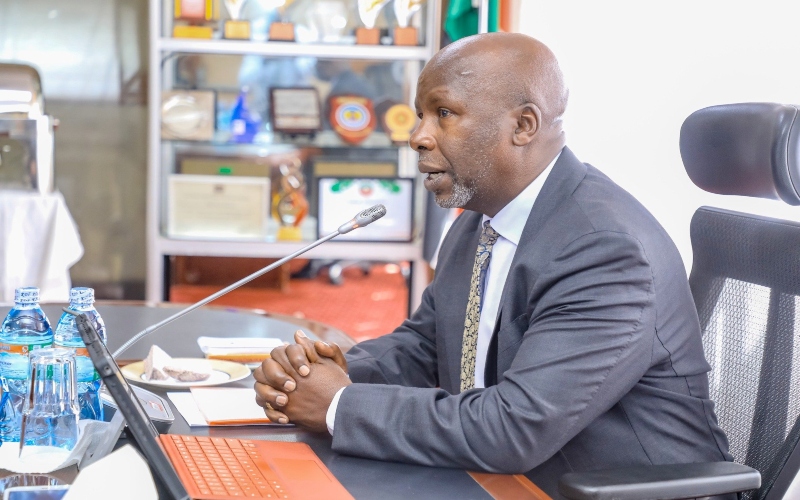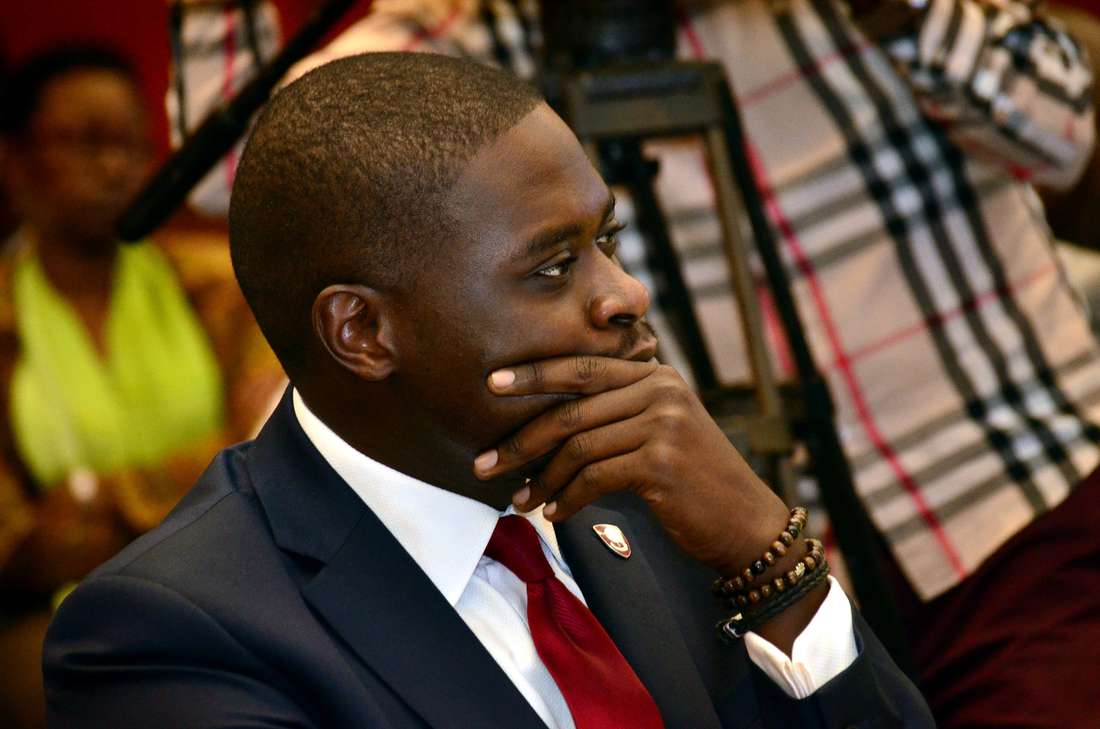Debt servicing limits Kenya’s ability to fund development – CoB

This reliance has forced the National Treasury to roll over obligations repeatedly, creating a cycle where new borrowing is primarily used to pay off interest on old loans.
Kenya’s rising debt obligations are increasingly crowding out funds for development projects and essential public services, the Controller of Budget (CoB) has warned.
According to the National Government Budget Implementation Review for 2024–25, released by Controller of Budget Margaret Nyakang’o, the government spent Sh1.05 trillion servicing domestic debt.
More To Read
- Mounting pending bills choking SMEs, risking jobs - CoB Margaret Nyakang’o
- Penalties on pending bills surge by Sh3.7 billion, hitting Sh25.28 billion
- State House drains Sh3.6 billion in 42 days, raising alarm over reckless spending
- Senators oppose Treasury’s centralised county revenue management plan
- Kenya eyes TDB loan to clear Sh51.6 billion debt due September
- Parastatals’ unchecked borrowing fuelliing Sh2.9 billion debt, Auditor General warns
Of this, Sh632.3 billion went to interest payments while only Sh360.1 billion was used to repay principal amounts.
“The total domestic debt service was Sh992.39 billion, comprising principal repayments of Sh360.09 billion and interest payments of Sh632.30 billion,” Nyakang’o stated.
The report reveals that the government’s focus on short-term domestic borrowing to meet budget gaps has resulted in rapidly increasing debt service obligations.
Short-term Treasury bills, including 91-day, 182-day, and 364-day papers, now dominate domestic borrowing, carrying higher interest rates that raise the cost of servicing debt.
This reliance has forced the National Treasury to roll over obligations repeatedly, creating a cycle where new borrowing is primarily used to pay off interest on old loans.
Domestic debt service absorbed the bulk of public debt spending, amounting to Sh992.4 billion out of the total Sh1.7 trillion spent on debt.
Meanwhile, external debt grew modestly by 4 per cent to Sh5.40 trillion, compared to a 17 per cent rise in domestic debt to Sh6.33 trillion, highlighting a sharp shift in borrowing patterns.
The heavy debt burden has left limited fiscal space for critical projects. Ministries, Departments and Agencies reported significant delays in infrastructure, healthcare, and education initiatives, while pending bills swelled to Sh524.8 billion by June 2025.
Capital works received only Sh90.4 billion in funding, dwarfed by the hundreds of billions directed toward interest payments.
Nyakang’o noted that commercial banks hold 42.6 per cent of domestic debt, making them key players in government borrowing.
"Any reduction in exposure or demand for higher returns could further increase borrowing costs," she said.
The report emphasises that debt service consumed 55.5 per cent of total revenues in 2024–25, well above the 30 per cent limit recommended by the IMF. This has restricted investment in public services, leaving the government trapped in a cycle of borrowing to cover debt costs, rather than using funds to drive growth and development.
The Controller of Budget warns that unless Kenya reassesses its reliance on high-cost, short-term debt instruments, the financial pressure on development projects will worsen, threatening delivery of essential services and slowing progress across key sectors.
Top Stories Today











































